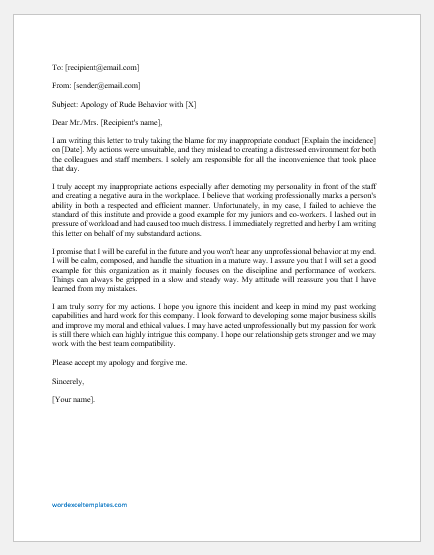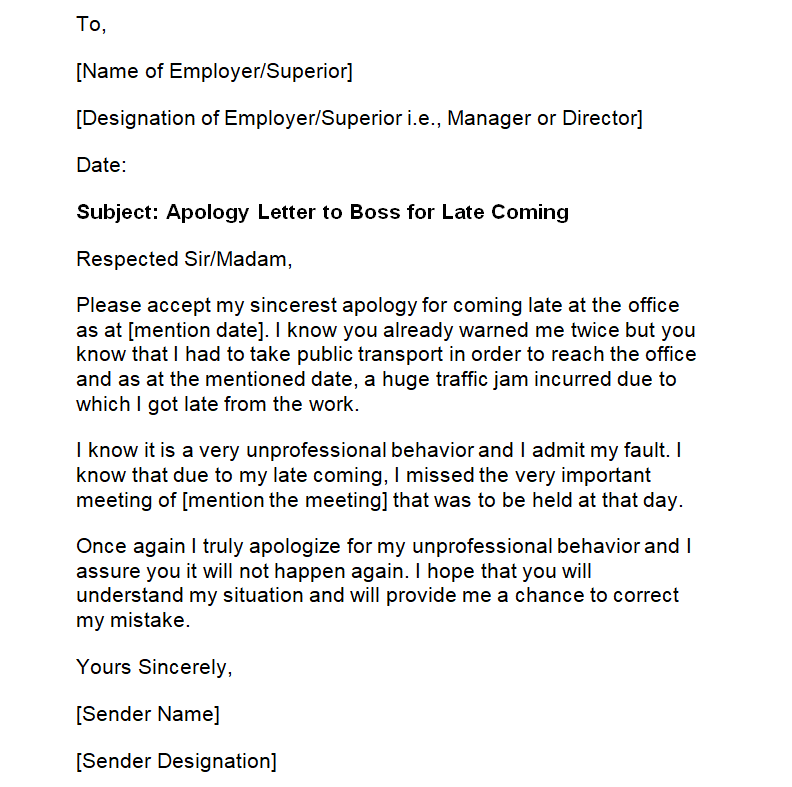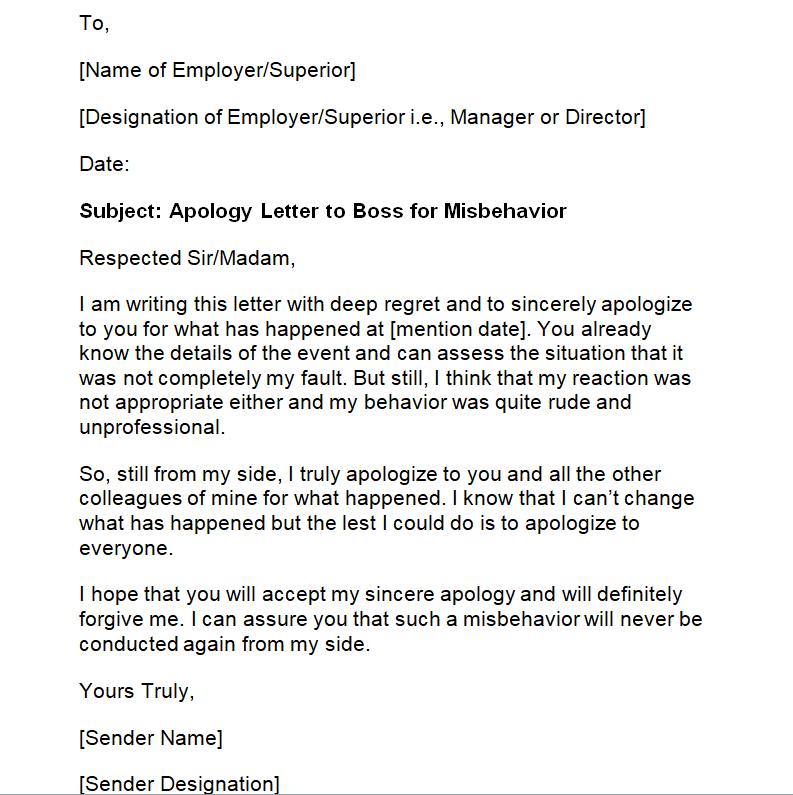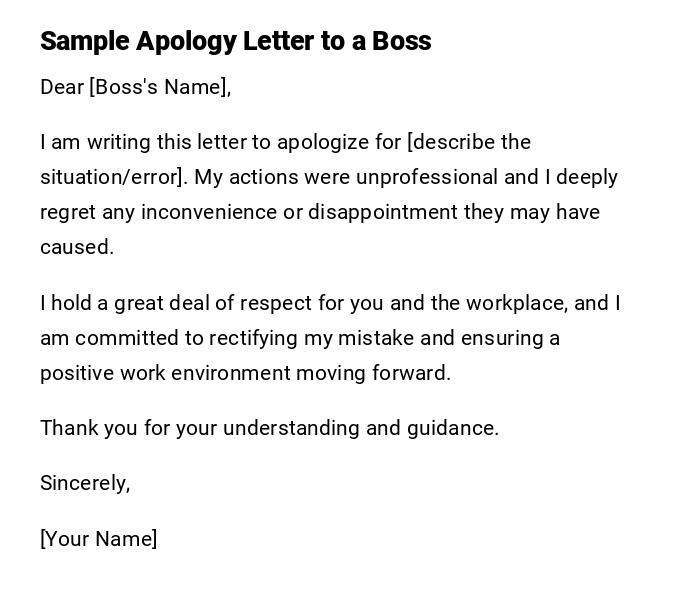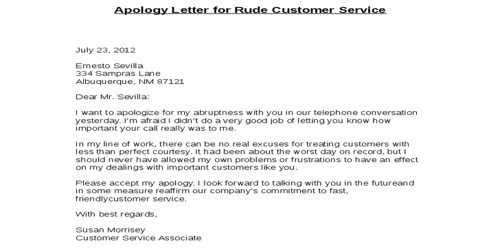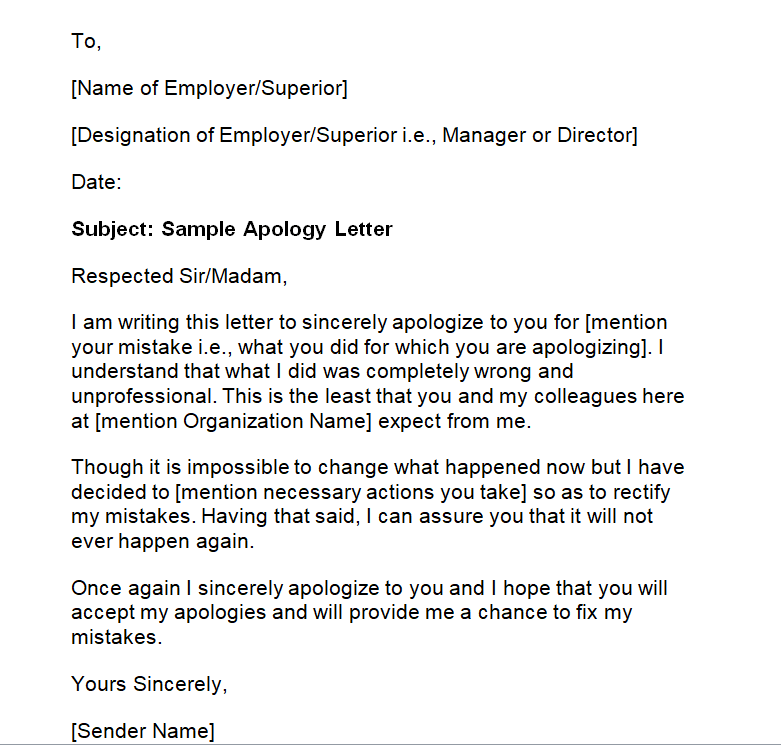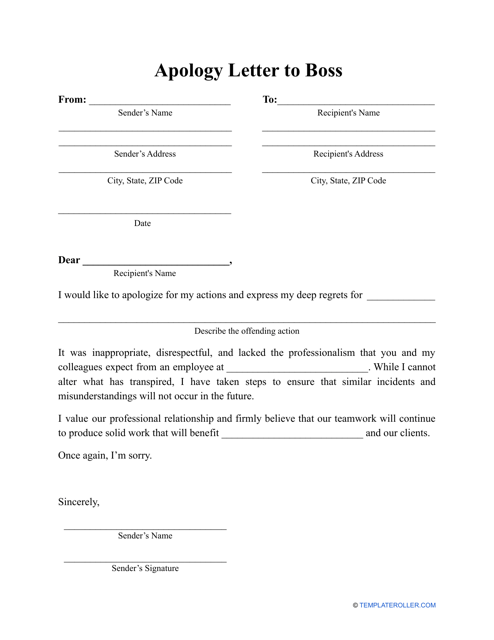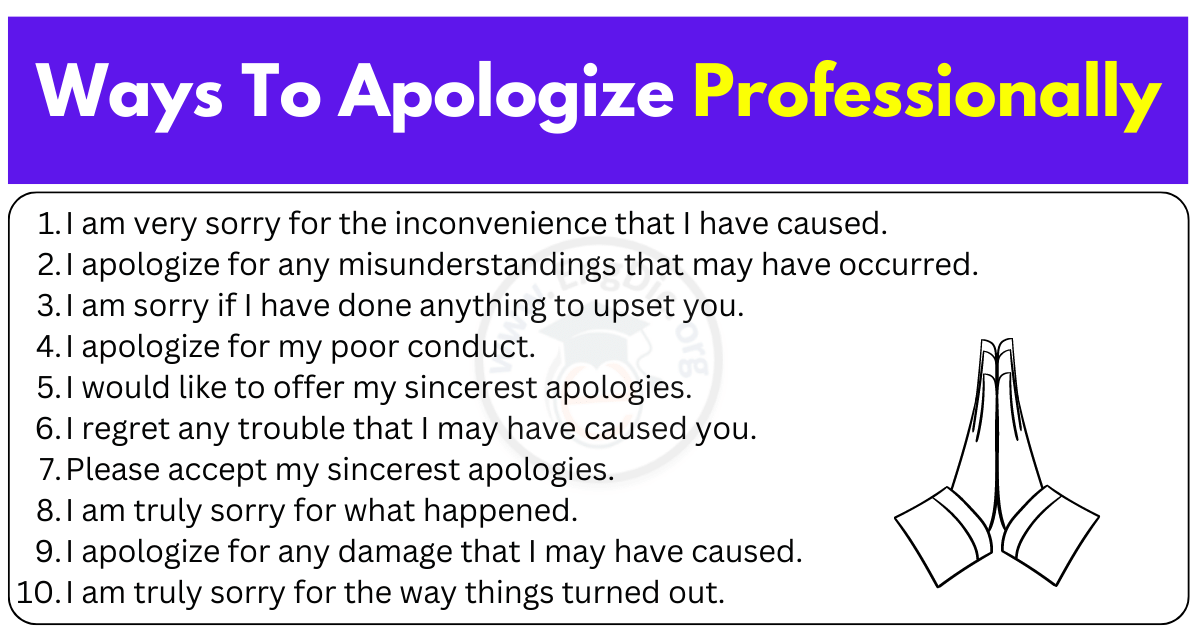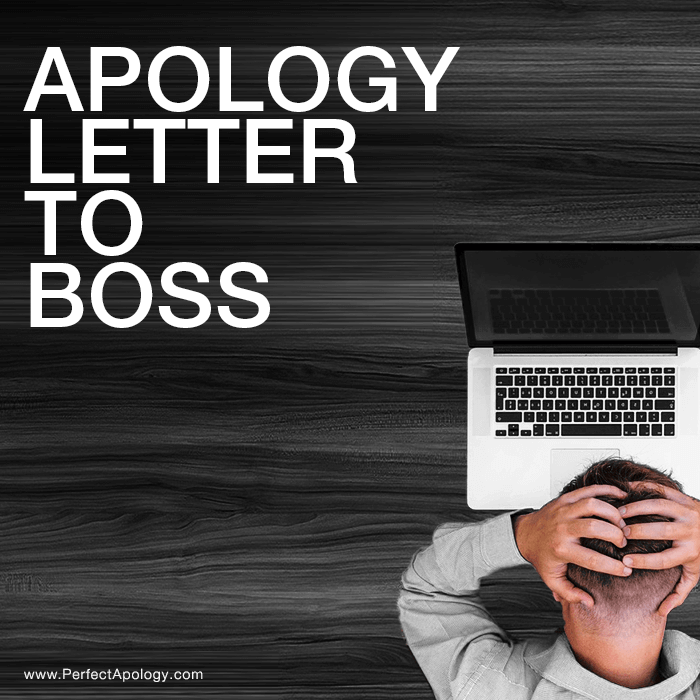How To Apologize To Your Boss For Being Rude

The knot in your stomach tightens with each passing hour. A harsh word, a dismissive tone, an out-of-line comment – the memory replays on loop. Having been rude to your boss is a career misstep that demands immediate and careful attention.
Repairing the damage requires more than a simple "I'm sorry." It necessitates a sincere apology, a demonstration of changed behavior, and a commitment to prevent future incidents. This article dissects the process of crafting an effective apology, exploring strategies backed by communication experts and workplace psychologists to help you navigate this delicate situation and rebuild professional trust.
Understanding the Gravity of the Situation
Before drafting an apology, it's crucial to assess the extent of the offense. Was it a momentary lapse in judgment, or does it reflect a pattern of disrespectful behavior? Consider the context: was it in private, or in front of colleagues?
According to a 2023 survey by the Society for Human Resource Management (SHRM), incivility in the workplace is on the rise, with 78% of HR professionals reporting an increase in employee rudeness. Addressing the issue proactively is not just about salvaging your reputation, but also contributing to a healthier work environment.
Crafting a Sincere Apology
The core of any effective apology lies in its sincerity. A half-hearted or insincere apology can further damage your relationship with your boss.
Start with a direct and unambiguous acknowledgement of your behavior. Avoid qualifiers like "I'm sorry if I offended you," which shift the responsibility onto the recipient. Instead, say something like, "I am truly sorry for my disrespectful behavior during our meeting yesterday."
Take ownership of your actions without making excuses. Explain briefly what led to your behavior if appropriate, but avoid blaming external factors or other people. Focus on your own responsibility for your actions.
Demonstrate understanding of the impact your rudeness had on your boss. Consider their perspective: how did your behavior affect their authority, their ability to do their job, or their perception of you? Empathy is key.
Express remorse for the harm you caused. A genuine expression of regret can go a long way in rebuilding trust. Avoid being overly dramatic or self-deprecating, as this can come across as insincere or attention-seeking.
Delivering Your Apology
The method of delivery is just as important as the content of your apology. Consider whether a face-to-face apology, an email, or a written letter is most appropriate, taking into account the severity of the offense and your boss's communication style.
In most cases, a face-to-face apology is the most effective approach. It allows you to gauge your boss's reaction and respond accordingly.
Choose a private and quiet setting where you can speak freely without interruption. Prepare what you want to say beforehand, but avoid sounding rehearsed. Speak from the heart and be genuine.
If a face-to-face apology is not possible or appropriate, a well-written email can be a suitable alternative. Be concise, professional, and avoid rambling. Review the email carefully before sending it to ensure it conveys the right tone.
Demonstrating Changed Behavior
An apology is just the first step. To truly repair the damage, you need to demonstrate a commitment to changing your behavior.
Ask your boss for feedback on how you can improve your communication style. Be open to constructive criticism and show a willingness to learn from your mistakes. According to a Harvard Business Review article on workplace conflict, active listening and seeking feedback are crucial for rebuilding relationships.
Make a conscious effort to be more respectful in your interactions with your boss and colleagues. Practice active listening, avoid interrupting, and be mindful of your tone and body language.
If your rudeness stemmed from underlying issues such as stress or frustration, take steps to address those issues. Consider seeking professional help or implementing stress-management techniques. This shows that you are taking responsibility for your overall well-being and are committed to preventing future incidents.
Moving Forward
Rebuilding trust takes time and consistent effort. Don't expect your boss to immediately forgive and forget. Be patient, persistent, and continue to demonstrate your commitment to improving your behavior.
"Trust arrives on foot but leaves in a Ferrari." - Author Unknown
Focus on rebuilding your professional relationship with your boss by being a reliable and supportive team member. Offer assistance, go the extra mile, and demonstrate your commitment to the company's goals.
By taking responsibility for your actions, offering a sincere apology, and demonstrating changed behavior, you can significantly increase your chances of repairing the damage caused by your rudeness and rebuilding a positive working relationship with your boss. This will not only benefit your career but also contribute to a more respectful and productive work environment for everyone.

